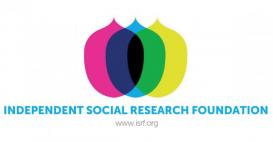This study engages with recent global environmental scholarly debates on the adaptation and mitigation options that a less-developed country such as Zimbabwe can best adopt to ensure long-term sustainability. Despite its small carbon footprint, Zimbabwe is disproportionately impacted by climate change, as evinced by the increasing frequency and severity of climatic risks. Cyclone Idai of 2019, which caused severe flooding in the country and its neighbors Mozambique and Malawi with a disastrous loss of lives, crops, livestock, and infrastructure, is a typical example of how Zimbabwe is experiencing the devastating effects of climate change. This makes our research agenda urgent and topical.
The study analyzes rich primary and secondary data available from oral interviews with expert informants and ordinary people, contemporary reports, journal articles, and books, applying qualitative methods, comparison with other Southern African countries, case studies, and sustainable livelihood approaches. We argue that there is a dearth of knowledge on the nexus between sustainable development and climate change in Zimbabwe: approaches focusing on global or regional dimensions to these issues, while important, disguise other, more mundane and specific local environmental problems. Further, the impact of climate change on sustainable development should be differentiated and considered discretely. Our study will make a historically nuanced evaluation of the extent to which local livelihoods and the environment are impacted by considerations of political economy and proffer practicable solutions that are both cost-effective and sustainable in the medium to long term.
Our approach combines earth and environmental science with political and economic considerations informing policy decisions on climate change over the four decades under study. We engage with the interdisciplinary debates between the natural sciences and the humanities and advance the theorization and empirical exploration of historical and scientific knowledge of climate adaptation and mitigation strategies.
Nelson Chanza holds a PhD in Environmental Geography, MSc in Environmental Policy and Planning and BSc Honours in Biological Sciences. He has taught in universities in Zimbabwe and South Africa since 2007. He is currently a Senior Research Fellow with the University of Johannesburg. Nelson also got several research awards, including the doctoral research bursary from Nelson Mandela University; DAAD climapAfrica fellowship; Technical Centre for Agricultural and Rural Cooperation (CTA-Wageningen) research grant; the Global Development Partnership Centre (GDPC-South Korea) fellowship; and recently the ISRF-MPIWG Collaborative Fellowship in Berlin. His research contributions largely involve multiple evidence paradigm and applications in climate science, i.e., local-based climate change indicators, and adaptation and mitigation strategies that are understood by and appropriate to local communities, including IKS. He has published over 40 journal articles and book chapters. His current research pursuits are in the areas of adaptation and resilience science. From a research front, he strives to make significant contribution in the discourse of sustainable human settlements through examining the interface between climate change and society. From a practice front, Nelson applies this knowledge to give expert-based support in the development and review of climate change policies, strategies and plans, and implementation of development projects in Africa. He has been engaged by national and international organisations as an expert to support the implementation of climate resilient projects, including by the United Nations Development Programme (UNDP).
Eric Kushinga Makombe is a mid-career academic and lecturer in Economic History and Development. Eric is a Research Fellow in the History Department at the University of the Free State (South Africa) and a Senior Lecturer in the Department of History, Heritage and Knowledge Systems at the University of Zimbabwe. Eric was a Visiting Professor at Lund University in Sweden for a couple of months in 2016. He holds a PhD (History) from the University of the Witwatersrand in South Africa. His broad research interests are in urban history, human economy and livelihoods, rural-urban linkages, climate change and rural development. Some of his published articles have appeared in the Journal of Developing Societies, Global Environment, Historia and Essays in Economic and Business History. Eric has also co-edited two book volumes as well as contributed book chapters to several manuscripts. Eric has received research grants and awards from CODESRIA, IFAS (French Institute of South Africa), the Land Deal Politics Initiative, DAAD NELGA Corona Research Fellowship, DAAD Climate Research for Alumni and Postdocs in Africa, and the Cambridge-Africa ALBORADA research grant. Overall, Eric’s research agenda is informed by an intense commitment to socially useful scholarship contributing both to the empirical development of pragmatic and workable solutions to rural sustainability and economic livelihoods.

